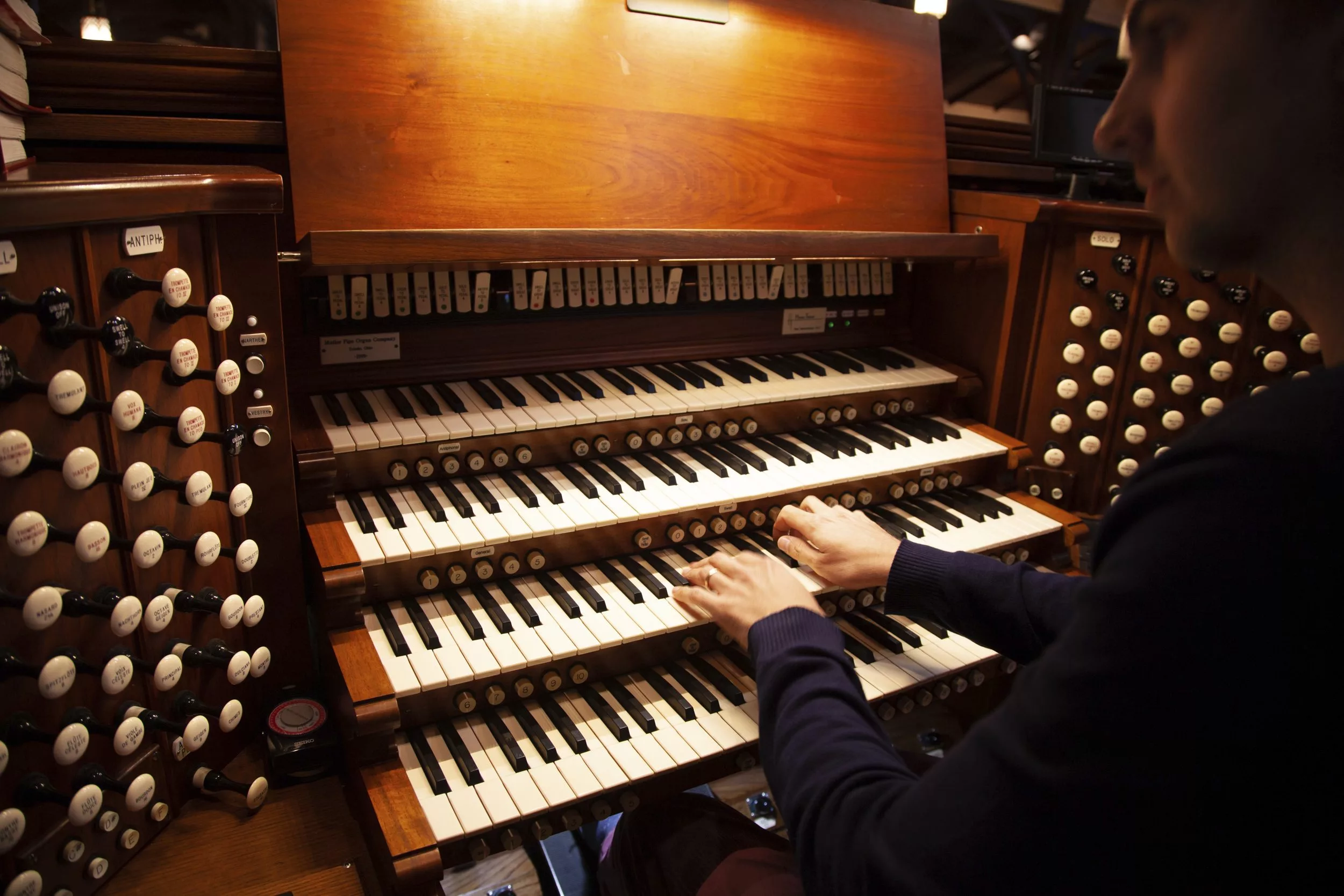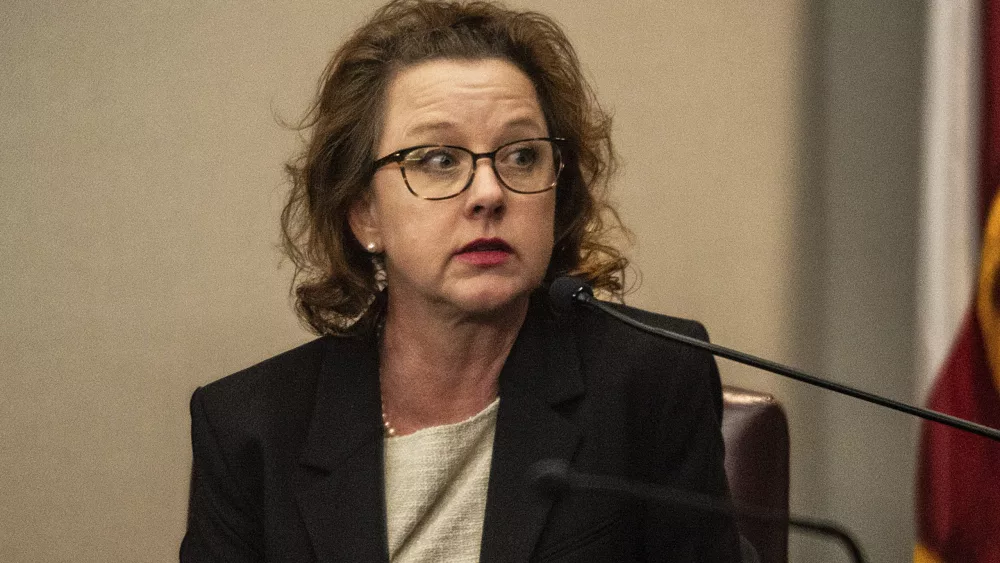LITTLE ROCK, Ark. (AP) — It was hushed inside a 140-year-old cathedral on the outskirts of Little Rock’s downtown as about five dozen people sat in the pews during a recent lunch break in January.
The nave filled with the sounds of the Gothic church’s pipe organ, and a screen showed a man performing the works of Johann Sebastian Bach. Those gathered weren’t there for church, but for the third concert in a series Colin MacKnight is performing over the next year to commemorate the 275th anniversary of Bach’s death.
MacKnight, Trinity Episcopal Cathedral’s music director, is performing all of Bach’s organ works throughout 2025 — one lunch break at a time. The ambitious plan entails performing 18 hours of music in half-hour increments nearly every Wednesday.
“I’ve wanted to for a really long time because it’s, I think, the most thorough way of immersing myself in the brilliance of Johann Sebastian Bach,” MacKnight said one morning as he rehearsed in the empty cathedral the day before a concert.
The concerts in Little Rock are among several events around the world this year commemorating the German composer’s legacy and the anniversary of his death.
MacKnight, who is from Bethesda, Maryland, has been music director at Trinity for three years. He said the first time he remembers hearing Bach was at a relative’s funeral when he was about 12 years old.
“Something about hearing it that time just really mesmerized me and that was the beginning of my love of Bach,” he said.
The 31-year-old’s hands move easily between the four keyboards of the organ console, flanked by knobs controlling different sounds that are assembled into various combinations.
Underneath, his feet press on the pedalboards — combining to create the notes of Bach’s works. MacKnight, who has played the organ since he was 16, acknowledges how dizzying the sight of the instrument can be for newcomers.
“If you don’t know what you’re looking at, it’s a little overwhelming, like an airplane console,” he said.
MacKnight’s concerts — which are free and open to the public — are also mini-lessons for those who come, with a glossary of terms like concerto and fugue included in the program. In between pieces, MacKnight gives audience members some background on Bach and his organ works.
“These pieces are in the unfortunate category of being much, much harder than they sound,” he says.
Generally regarded as one of the greatest composers of all time, Bach is known in particular for his organ works and their heavy use of pedals and complex structures. Few organists perform the composer’s complete organ works, given the difficulty and quantity of the music.
They include Grammy-winning organist Paul Jacobs, who taught MacKnight at the Juilliard School. Jacobs performed an 18-hour nonstop concert of Bach’s organ works to mark the 250th anniversary of the composer’s death in 2000.
The free concerts so far have drawn a mix of church members, classical music aficionados and newcomers who say they want a quiet break from the daily bustle.
“I like the complexity of the music and the power of the organ, which stirs me internally,” said Barry Coplin, a member of the church who has attended two of MacKnight’s concerts.
Ben Wiley, who lives about 30 minutes away, is a classical music fan who was attending his third of MacKnight’s shows and said he appreciates being able to hear Bach’s works in half-hour increments.
“It’s a good way to be able to get it done in short bursts, to be able to absorb it better and come back to get the next batch,” he said.
MacKnight is also performing a 100-minute concert of Bach’s most extensive organ work — the Clavier-Ubung III, sometimes referred to as the German Organ Mass — on July 28, the day the German composer died in 1750 at 65.
The Rev. Thomas Alexander, a priest at Trinity, said the concerts allow the public to enjoy MacKnight’s talents, come together and learn more about Bach in a way they normally wouldn’t be able to.
“It’s like reading someone’s complete collection of novels. You get to really get to know someone in a comprehensive way,” Alexander said. “But it also builds a sense of community.”
Brought to you by www.srnnews.com







